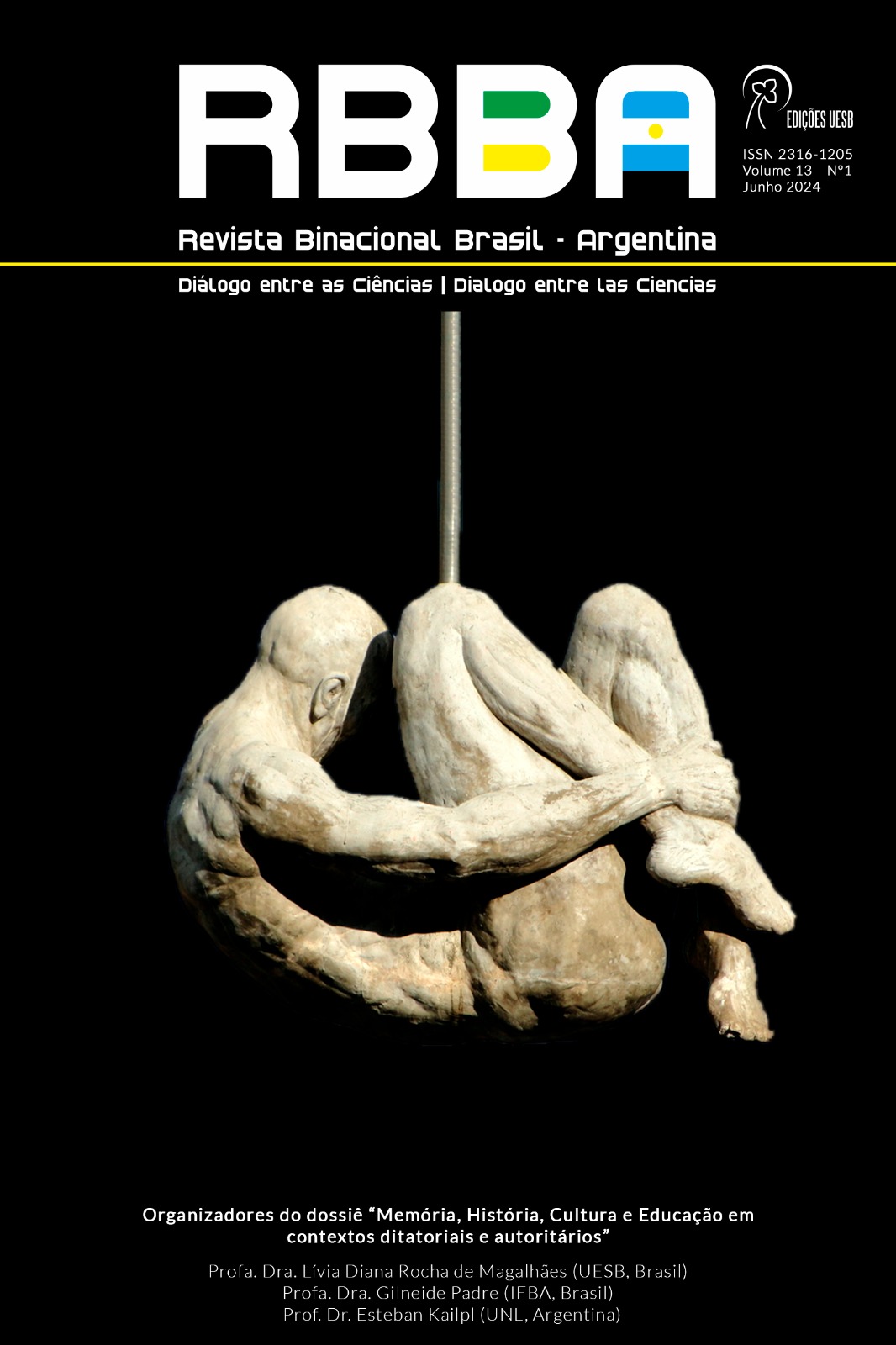Digital political leadership: Bolsonaro’s tweets
DOI:
https://doi.org/10.22481/rbba.v13i01.14780Keywords:
political representation, digital sphere, leadership, identitiesAbstract
This work focuses on an aspect related to political representation, particularly in the way in which Jair Bolsonaro built his identifying bond with his followers in the digital public sphere. Thus, its purpose lies in analyzing the construction of the link between the leader and the followers/adherents through the use and creation of messages that Bolsonaro made from his Twitter account, @jairbolsonaro, between 2021-2022. To collect the information and construct the corpus of tweets, web scraping was used using the SeoTools tool for Excel. The analysis of this information allowed us to report a research finding: political-digital leadership constituted the main type of political interaction between Bolsonaro and his followers. Furthermore, this type of political relationship occurred in a context marked by polarization and political incorrectness, elements that constituted the contour of the Brazilian physical-digital public sphere.
Downloads
References
ANNUNZIATA, R. La representación de proximidad: Conceptos, variaciones y límites. En: Democracias críticas, democracias inciertas. En Aportes y conjeturas, Marcelo Maina y Bernado Carrizo (Comp.), Santa Fe: Universidad Nacional del Litoral; Pp. 112-139, 2021.
CALVO, E. y ARUGUETE, N. Fake News, trolls y otros encantos. Cómo funcionan (para bien y para mal) las redes sociales. Buenos Aires: Siglo XXI, 2020.
CASTELLS, M. “El impacto de internet en la sociedad: una perspectiva global”. En C@mbio: 19 ensayos clave acerca de cómo Internet está cambiando nuestras vidas. pp. 127-148. 2014. Disponible en: https://www.bbvaopenmind.com/articulos/el-impacto-de-internet-en-la-sociedad-una-perspectiva-global/ . Recuperado: 10/07/2023.
CESARINO, L. Como Vencer umaeleição sin sair de casa: a ascensão do populismo digital no Brasil, Internet y Sociedad, N. 1, V. 1, Pp. 91-120, 2020.
CHERESKY, I. El nuevo rostro de la democracia. Fondo de Cultura Económica, 2015.
LACLAU, E. La razón populista. Buenos Aires: Fondo de cultura Económica, 2005.
MARTUCCELLI, D. Las sociedades y la polarización. En Revista EUROLATINOAMERICANA DE ANÁLISIS SOCIAL Y POLÍTICO, 1(1), 105-120, 2020.
PANIZZA, F. (Ed.). El populismo como espejo de la democracia. Buenos Aires: Fondo de Cultura Económica, 2009.
ROCHA, C. y SOLANO, E. (2021). A ascensão de bolsonaro e as classes populares. En Leonardo Avritzer, FábioKerche y Marjorie Marona (coords), GovernoBolsonaro: retrocesso democrático e degradação política, (pp. 21-34). São Paulo: Autêntica Editora.
URBINATI, N. La democracia en directo. Nuevos retos de la democracia. Revista Papeles de Campo Abierto, 1, 3-30, 2014.
REVELLI, M. Populismo 2.0. Turín: Eunaidi, 2017.
ROSANVALLON, P. La legitimidad democrática: imparcialidad, reflexividad, proximidad. Buenos Aires: Manantial, 2009.
SINGER, A. O lulismo em crise: umquebra-cabeca do periodo Dilma (2011-2016), Companhia das letras: Rio de Janeiro, 2018.
SOUROUJON, G. Las definiciones mínimas de populismo. Problemas y potencialidades. En Revista Pilquen. Sección Ciencias Sociales, 24(2), 1–12. Recuperado a partir de https://revele.uncoma.edu.ar/index.php/Sociales/article/view/3141, 2021.
SOUROUJON, G. La venganza de los incorrectos. La derecha radical populista y la política del resentimiento. En Revista Stultifera, 5(2), 2022. Pps. 101-123.
VAN DIJCK, J. La cultura de la conectividad: una historia crítica de las redes sociales. Buenos Aires: Siglo XXI, 2016.
WEYLAND, K. “Populism: A Political-Strategic Approach”. En Cristobal Rovira Kaltwasser (et. al.) The Oxford Handbook of Populism. Oxford, Oxford University Press. Pp. 68-98, 2017.
Downloads
Published
How to Cite
Issue
Section
License
Copyright (c) 2024 Revista Binacional Brasil-Argentina: Dialogue between the sciences

This work is licensed under a Creative Commons Attribution 4.0 International License.






